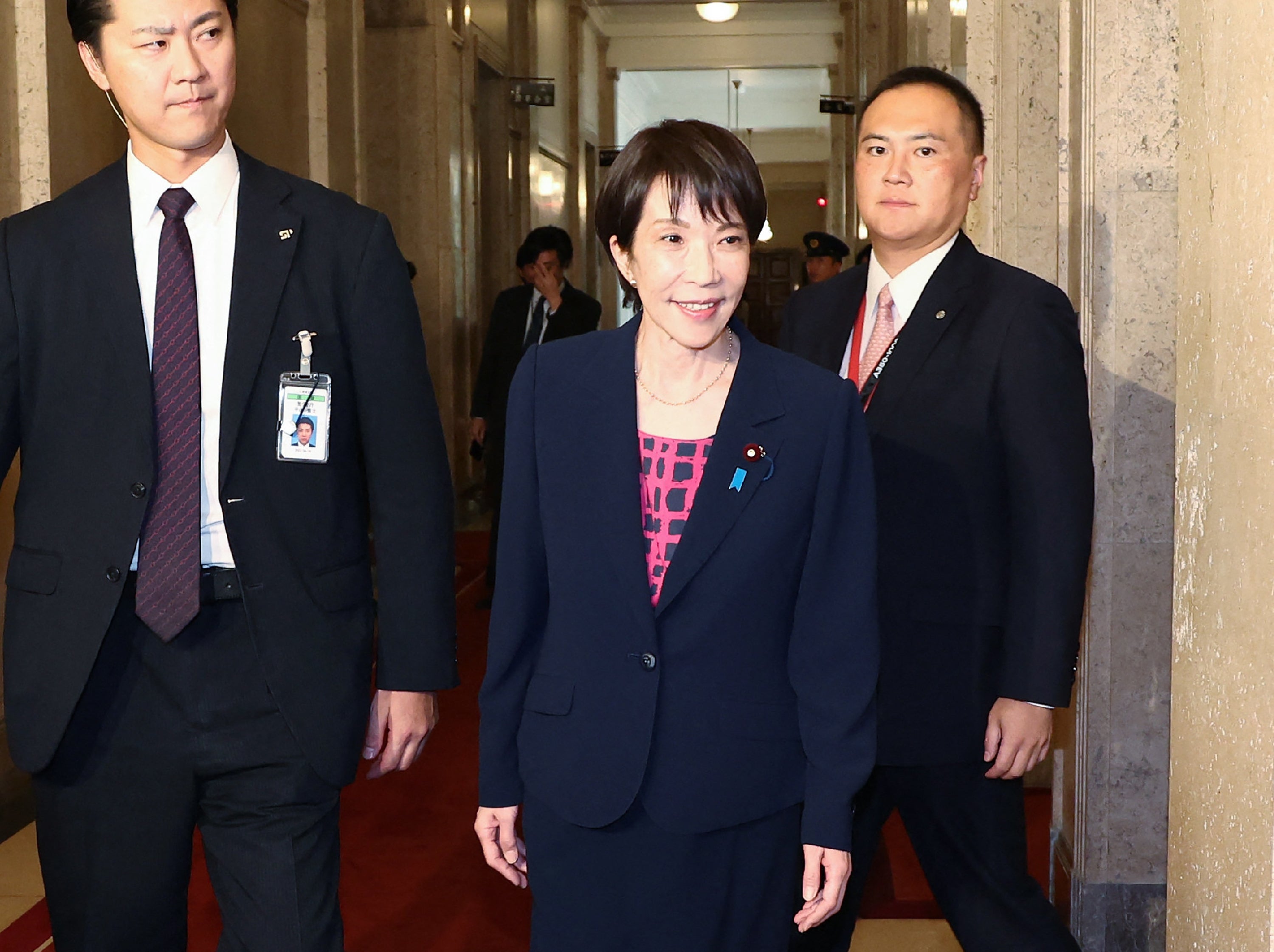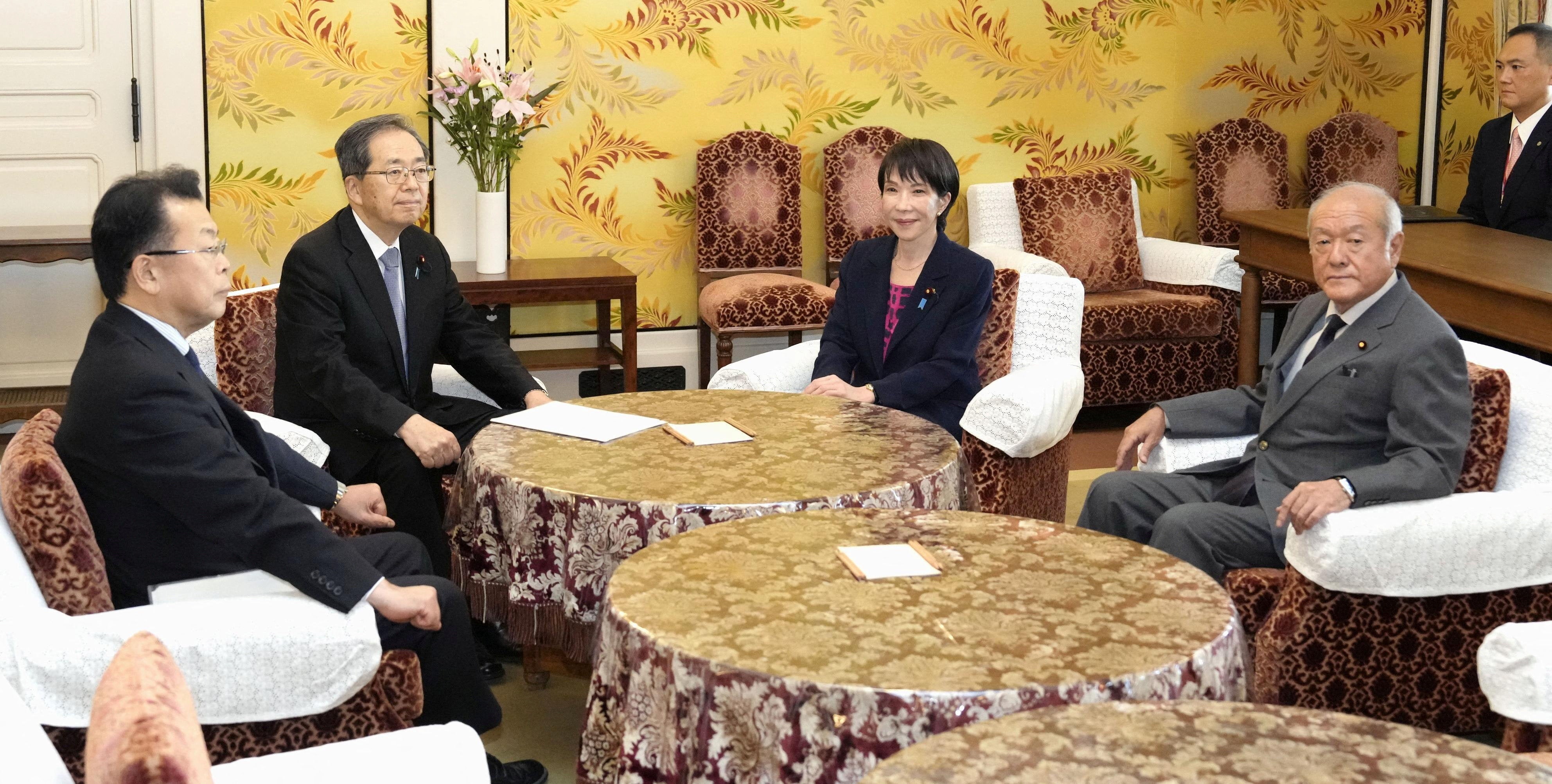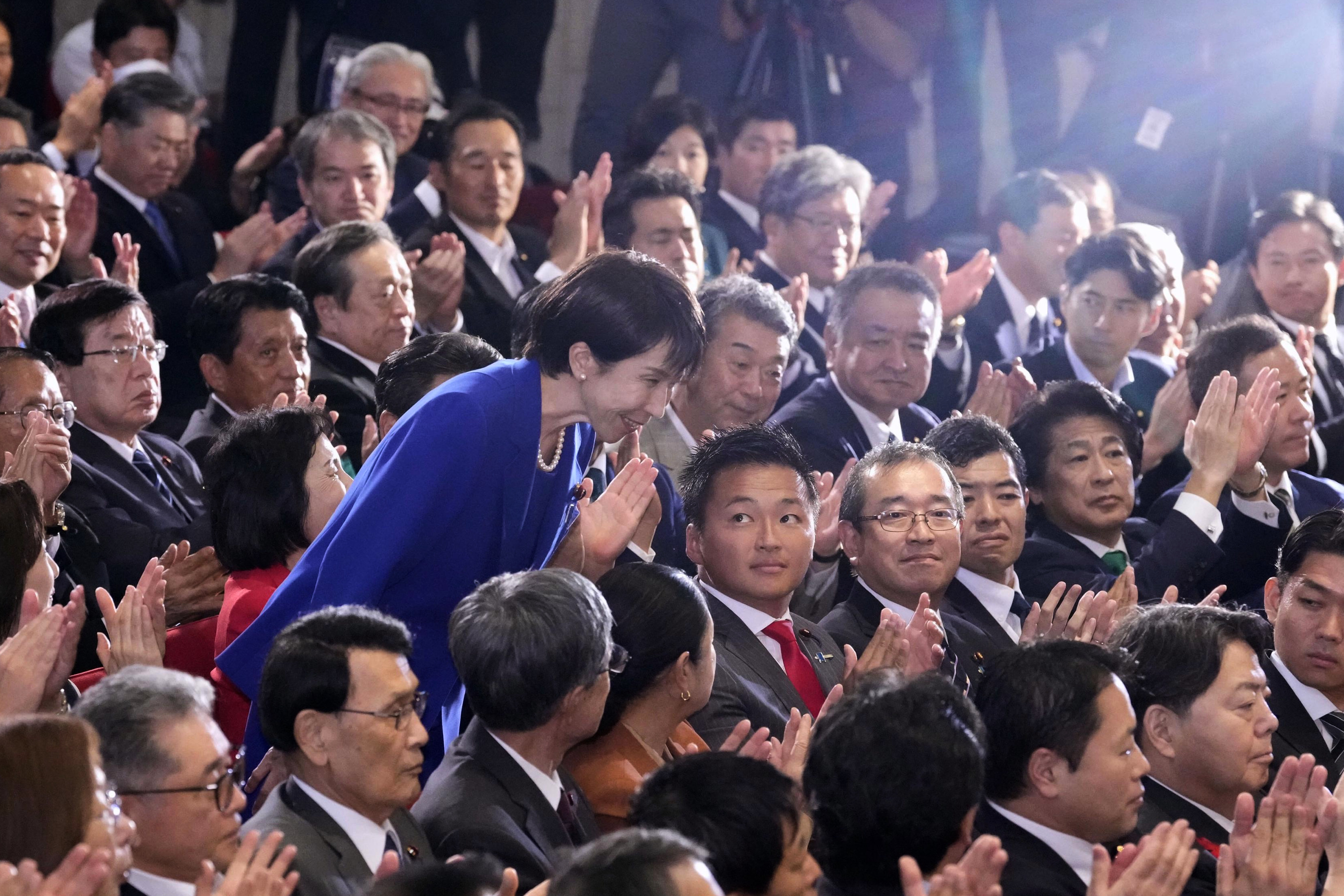
Japan’s political landscape was upended on Friday as Komeito, the long-time junior partner in the ruling coalition, announced its decision to end its 26-year alliance with the Liberal Democratic Party (LDP) over corruption concerns.
The decision, delivered personally by Komeito leader Tetsuo Saito to newly elected LDP president Sanae Takaichi, comes at a critical moment – just weeks before parliament is expected to vote to confirm Ms Takaichi as Japan’s first female prime minister.
The split will force the LDP, which no longer holds a majority in either chamber, to seek support from new allies such as the Democratic Party for the People (DPP) or Nippon Ishin no Kai to secure Ms Takaichi’s appointment.

“We’ll, for now, put an end to the LDP-Komeito coalition and take it back to the drawing board,” Mr Saito told reporters.
“Komeito will propose its own policies and become the axis of a moderate reformist movement and call on other parties, including the LDP, to move politics forward,” he added.
Ms Takaichi is the first woman to head Japan’s traditionally male-dominated ruling party, which has governed for nearly the entire postwar period.
Mr Saito said on Friday that Komeito would also suspend its election campaign support for LDP candidates – a major blow to ruling lawmakers who depend on Komeito’s grassroots network.

At the centre of the rift was Buddhist-backed Komeito’s insistence on tougher restrictions on political donations from corporations. The proposal, drafted jointly with the DPP earlier this year, sought to limit corporate donations to party headquarters and local chapters while banning payments to fundraising groups run by individual politicians.
The so-called slush fund scandal rocked Japan’s normally staid politics last year and severely dented the LDP’s performance at the most recent elections for both the lower and upper houses of parliament.
The LDP, Japan’s largest beneficiary of business donations, reportedly resisted such curbs. According to Mr Saito, Ms Takaichi’s response – that the party will “consider what to do from here on” — was insufficient to continue as partners.
“Although we will no longer be coalition partners, we shook hands, telling each other that we’ll continue to work toward resolving these (political funds) issues together with the trust built over the past 26 years,” said Mr Saito.
Breaking: Japan’s long-standing LDP–Komeito coalition has collapsed.
— Jeffrey J. Hall 🇯🇵🇺🇸 (@mrjeffu) October 10, 2025
Komeito would not back Takaichi as prime minister because they don't think she will do much about the LDP's funding scandals.
The breakup ends a 26-year alliance and might cost the LDP a huge number of votes. https://t.co/zM0bPol3e8
Besides corruption, Komeito’s other concerns were 64-year-old Ms Takaichi’s views on Japan’s wartime history and her visits to the Yasukuni Shrine, a site often criticised as glorifying the country’s militarist past.
The party was also uneasy about her tough stance on foreigners. Ms Takaichi is part of the LDP’s hardline nationalist faction, and most recently made headlines for accusing foreigners of abusing the famously docile deer in her Nara hometown, without providing evidence.
Earlier this month, she faced fire when she asked all party lawmakers to “work like a horse”. She added: “I will abandon the word ‘work-life balance’. I will work, work, work and work.”
According to the Japan Times, Komeito officials have emphasised that they would not oppose every government bill, including budgets or legislation developed jointly with the LDP in the past.
🇯🇵#Japan:
— World Elects (@ElectsWorld) October 10, 2025
Komeito is ending its 26 years coalition with the ruling Liberal Democratic Party (LDP).
This jeopardizes the nomination of Sanae Takaichi, the new leader of the LDP, as Prime Minister.
The opposition could, if it unites, form a Government for the 1st time since 2012 pic.twitter.com/mxObmzFoco
There was reportedly intense internal debate within Komeito ahead of Friday’s decision. On Thursday night, about 100 local assembly members were evenly split on whether to abandon the coalition. But on Friday morning, party executives agreed to withdraw to avoid delaying the opening of parliament.
The LDP currently holds 196 seats in the Lower House, well short of the 233 required for a majority. Without Komeito’s 24 seats, the party now faces a huge challenge in securing enough backing to confirm Ms Takaichi as prime minister.

Speaking to reporters after her meeting with Mr Saito, Ms Takaichi said: “I was unilaterally informed of Komeito’s withdrawal from the coalition.”
She added: “It’s a pity, but that’s the conclusion they’ve reached.
“Personally, I think that setting up an auditing committee for political funds is a good idea,” said Ms Takaichi.

“I’ll do my utmost to gain the necessary support,” Ms Takaichi said, referring to the forthcoming parliamentary vote to choose the next prime minister.
Ms Takaichi has previously voiced support for maintaining the Japanese imperial family’s male-only line of succession, and she opposes both same-sex marriage and reforms to Japan’s 19th-century civil code that would let married couples use separate surnames – progressive changes which would ease pressure on women to give up their own names after marriage.
Yoshinobu Tsutsui, head of Japan’s biggest business lobby Keidanren, told Reuters: “With urgent policy challenges piling up at home and abroad and key diplomatic engagements imminent, political stability is indispensable. In this context, it is truly regrettable that Komeito has made this announcement.”
Japanese stocks fell and the yen rose in trading late on Friday as Ms Takaichi’s chances of becoming prime minister sharply declined, local reports said.







